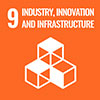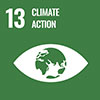Contradictions and promises of circular economy
Circular economy is an alternative to the linear “extract-use-dispose” economic model, based on the ideas of recycling, repair and reuse. The circular economy promises to turn the trade-offs of unsustainable economic growth in a limited planet into synergies that make sustainability a growth strategy. The knowledge base of the circular economy, however, is highly divided and characterised by controversy over the very possibility of circularity itself. This paper asks why such a controversial idea has gained so much traction in public policies, at the EU level and at lower scales, such as the urban level. Although the focus on win-win solutions was understandable in the context in which the first circular economy policies were formulated in the EU, in the current context this policy framing may obfuscate more than it enlightens by rendering debates about complex sustainability issues technical and apolitical.
ODS



 Zora Kovacic
Zora KovacicZora Kovacic is a postdoctoral researcher in the Urban Transformation and Global Change (TURBA) group at the UOC's Internet Interdisciplinary Institute (IN3). Her research focuses on the role of innovation as an imaginary in sustainability public policies. Zora holds a degree in Economics and Development from the School of Oriental and African Studies (SOAS), a master's degree in Environmental Studies from the Autonomous University of Barcelona and the Hamburg University of Technology. Zora did her PhD at the Institute of Environmental Science and Technology (ICTA) of the Universitat Autònoma de Barcelona, and has worked at Stellenbosch University (South Africa) and the University of Bergen (Norway).



